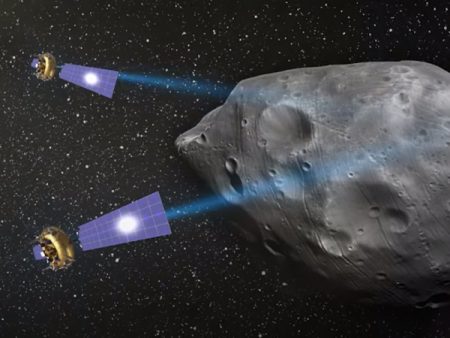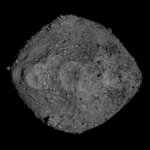July 17, 2017 – Appropriation is another word for exploitation. And it seems that the original intent of humanity in addressing the international use of outer space is quickly falling away. Back in 1967 and again in 1976, led by the United States and the Soviet Union, a United Nations treaty outlawed the exploitation of nonterrestrial resources. The Moon was to be a sanctuary of nondevelopment. This was followed by a 1979 treaty further reinforcing the notion of leaving the Moon in its pristine state. The idea was that outer space was to be treated as off limits to anything but scientific exploration and study, that humans going into space were to be envoys of the Earth should they encounter intelligent life at some future date.
Those ideas have ebbed as the commercialization of outer space is taking hold first in the United States, and now in other nascent space programs in other countries. In particular, a number of private companies have become competitors to national space agencies and their previous monopoly in outer space. Space to be used for the benefit of all mankind, as first proposed in the 1960s, has now added a bottom line.
In 2015 the United States Congress passed legislation giving commercial companies the right to appropriate resources from space. Two laws, the Space Resource Exploration and Utilization Act, and the Commercial Space Launch Competitiveness Act, give American companies the right to exploit space resources including the mining and harvesting of minerals and water from the Moon, asteroids, and planets. The only exemption is the biology discovered. The latter of the two acts specifically states, “A U.S. citizen engaged in commercial recovery of an asteroid resource or a space resource shall be entitled to any asteroid resource or space resource obtained, including to possess, own, transport, use, and sell it according to applicable law, including U.S. international obligations.”
These laws reverse the American commitment to the Moon treaty of 1979 which forbade countries from exploiting our nearest space neighbour as well as planets and asteroids until an international agreement on common use was enacted. It would appear an international agreement is no longer likely, particularly in light of the rise of private companies focused on commercial space development. From commercial satellites in near-Earth to geostationary orbits around our planet, to robot miners of asteroids, it is not such a dramatic leap.
So it should be no surprise that America’s abandonment of space inviolability is being joined by others of which the first is the Grand Duchy of Luxembourg, the European Union’s tiniest member. This week Luxembourg enacted a new law with Article 1 stating, “Space resources are capable of being appropriated.” Responsibility for issuing permits comes from Ministries in charge of economic development and space activities. They are authorized to issue permits to any person requesting the right to explore and “use space resources for commercial purposes.” Rights will be granted to public companies, corporate partnerships, and private limited liability companies registered in Luxembourg.
One of those registered Luxembourg companies is Planetary Resources, founded in 2009. The government, along with the Société Nationale de Crédit et d’Investissement, a Luxembourg bank, has made a 12 million Euros investment and extended a 13 million Euros grant to this American company that now has its European headquarters in Luxembourg. Established in 2009, Planetary Resources describes asteroids as the resource that will “unlock the Solar System’s economy.”
The company intends to utilize space resources, particularly near-Earth asteroids, described as the “low-hanging fruit” of the Solar System. The focus will be on harvesting water and platinum. Water is seen as a space game changer for human presence in space. It can be drunk. It can serve as shielding for space habitations. In its molecular components, hydrogen can be exploited for fuel, while oxygen for life support.
Planetary Resources is sending out robotic explorers to identify asteroids rich in minerals, particularly platinum, which on Earth is found at asteroid impact sites or is a product of volcanic eruptions. Platinum has many uses here on Earth and creating an almost unlimited supply will spur an era of innovation in advanced manufacturing.
So it would seem that Luxembourg’s new space appropriation law serves the country well. After all, they are creating a law to protect their investment.









